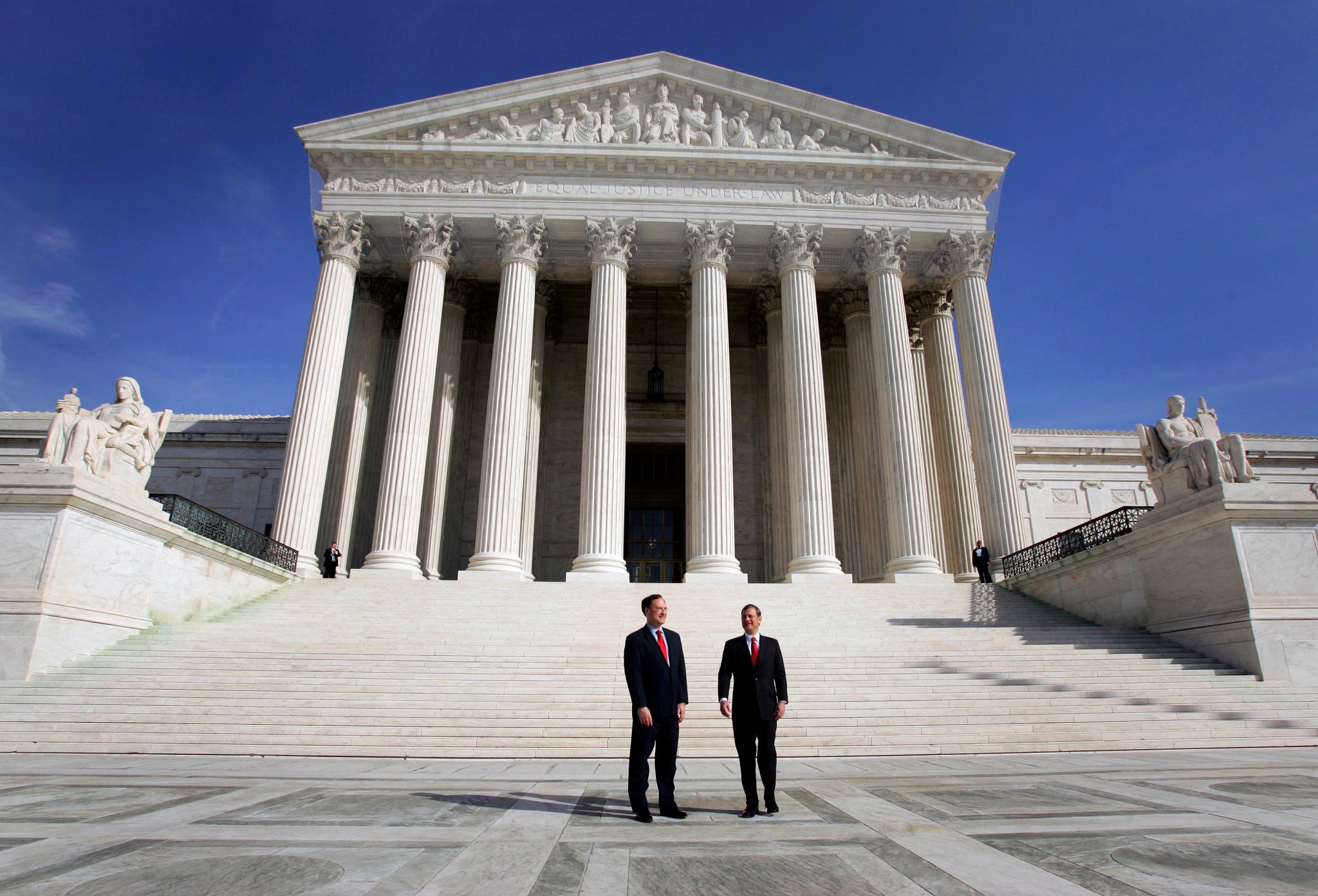Supreme Court's 'Hobby Lobby' ruling explained: did the US really rule that religious beliefs are more important than the law?
Controversial ruling welcomed by religious conservatives - but others say it undermines women's rights and places belief above scientific fact

It seems unlikely, but this Monday a chain of arts-and-craft shops in the US triggered one of the most controversial rulings over religious freedom and women's health ever seen in the country.
This is the ‘Hobby Lobby’ ruling, a decision by the Supreme Court to allow a company to stop paying for certain types of contraception in its employees' health insurance – despite the fact that these are included by law in Obamacare - the president's ’s landmark healthcare bill.
The decision has been hailed as a victory for Republicans and the religious right, while Democrats and pro-choice organizations have decried the ruling. The American Civil Liberities Union say the decision allows "business owners [to] use their religious beliefs to deny their employees a benefit that they are guaranteed by law," while the laywers for Hobby Lobby called it "an enormous victory for personal freedom."
What is Hobby Lobby?
Hobby Lobby is a chain of arts-and-craft stores owned by a Christian billionaire named David Green. In 2012 they filed a lawsuit against the United States over new health insurance regulations that mean they had to supply emergency contraceptives and intrauterine devices (IUDs) to employees.
What did they want?
To not pay for employees' birth control - specifically Plan B and Ella (two US brands of morning-after pill) and a pair of IUDs (plastic and copper inserts that kill sperm cells before they reach the egg).
Hobby Lobby has said that providing these goes against their religious belief as they constitute abortion - something they define as when a fertilized egg implants itself in the uterus about four weeks after conception.
The company's opponents have pointed out that even under their own definitions, these contraceptive methods don't count as abortion as they all stop eggs from being fertilized in the first place - several weeks before the cells implant in the uterus and start to grow.
Who voted for this?
The Supreme Court - a body composed of nine justices that are appointed for life by the President and confirmed by the Senate. In this ruling five male members voted for the decision and one male member and the three female members voted against it.
The three women justices - Ruth Bader Ginsberg, Sonia Sotomayor, and Elena Kagen - were all appointed by Democratic presidents, and the pro-choice organization NARAL described the ruling as "sexist" - "a direct attack on women and our fundamental rights".
Why is it so controversial?
Opponents of the ruling describe it as a setback for women's rights that also sets worrying precedents regarding the importance of religious beliefs over the law.
Pro-choice activists point out that for women earning the minimum wage the IUD (one of the most effective forms of birth control) costs as much a month's full-time pay - a price that could force women to choose between paying for food and rent or buying contraception.
Civil liberties groups say the ruling will allow other companies to discriminate against the workforce based on their own "sincerely held religious beliefs".
“Suppose an employer’s sincerely held religious belief is offended by health coverage of vaccines, or paying the minimum wage, or according women equal pay for substantially similar work?” asked Justice Ginsburg in her criticism of the ruling.
Justice Samuel Alito (who represented the 'yes' majority) made it clear that the ruling couldn't override laws against racial discrimination - but was silent on the issue of discrimination based on sexual orientation.
.
How can a company have religious beliefs?
The crux of the legislation rests on a concept known as 'corporate personhood' - the idea that corporations or companies can have some of the same rights are individuals.
The idea has been critizicized in the US after a 2010 ruling known as Citizens United allowed corporations (like individuals) to donate as much as they liked to political campaigns.
In the Hobby Lobby decision, the Supreme Court also decided that a 1993 Act that lets Americans ignore federal laws if they “substantially burden religious exercise” also applies to companies - as long as they can demonstrate the law offends their "sincerely held religious beliefs". This has led to objections like this:
So what next - will companies just stop supplying contraception if they don't want to?
No. The ruling applies only to “closely held corporations” – companies for which five or fewer individuals control more than fifty per cent of the stock. However, these make up 90 per cent of all businesses in the US are “closely held” and employ 52 per cent of the country’s workforce.
As the Washington Post notes, many large employers (85 per cent) offered contraception coverage even before Obamacare, while the majority of small businesses (96 per cent) will never be forced to offer it because they have fewer than 50 full-time employees.
However, as the Hobby Lobby ruling only requires that businesses demonstrate ‘sincere religious beliefs’ to be exempt from a law, there is the possibility that all sorts of businesses will now start objecting to certain laws - especially if doing so undermines their political opponents.
No wonder Justice Ginsberg summed up the decision thus: "The court, I fear, has ventured into a minefield."
Subscribe to Independent Premium to bookmark this article
Want to bookmark your favourite articles and stories to read or reference later? Start your Independent Premium subscription today.

Join our commenting forum
Join thought-provoking conversations, follow other Independent readers and see their replies